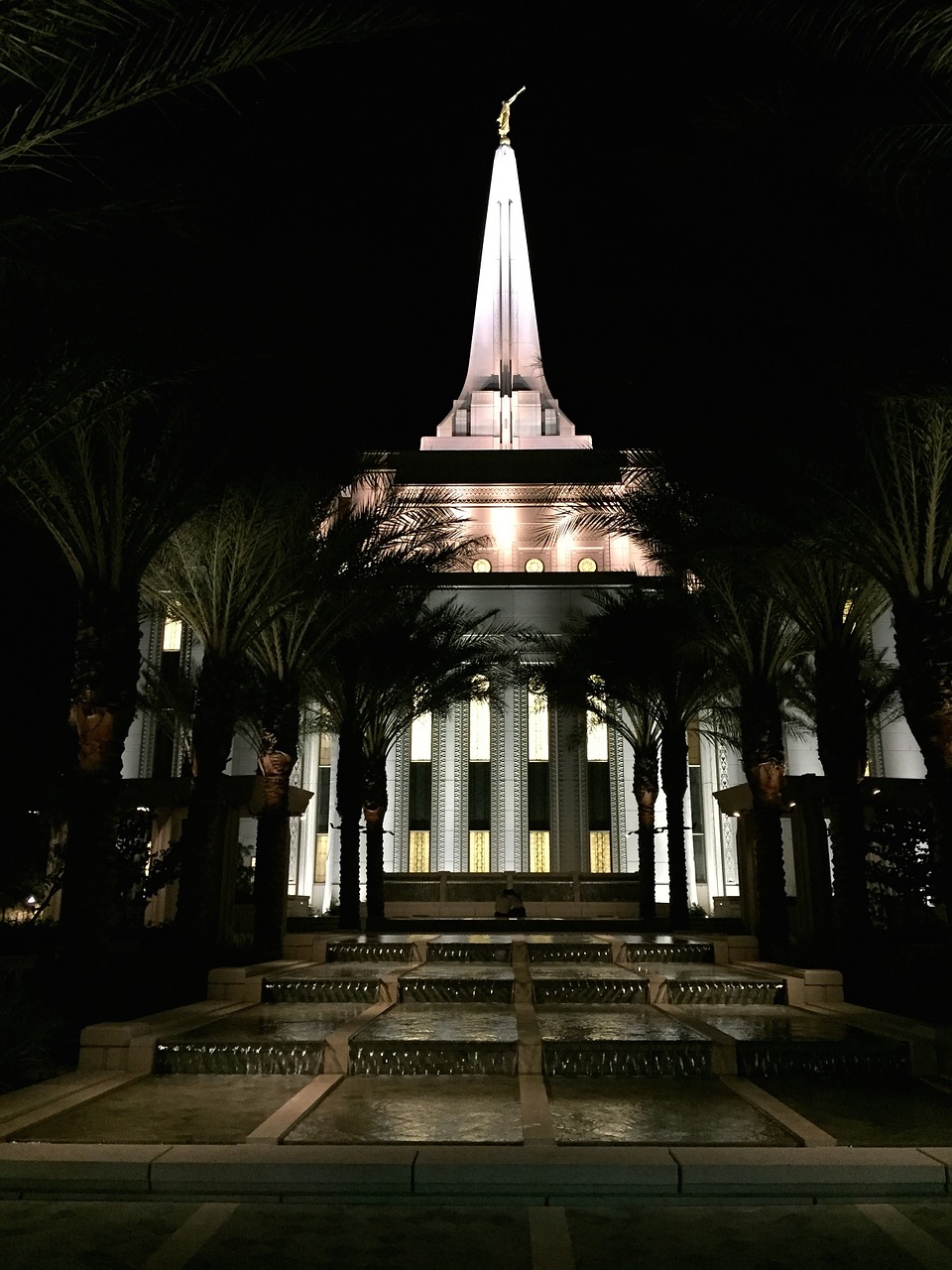In studying the Church of Jesus Christ of Latter-day Saints, I encourage everyone I know to ask detailed questions and learn all they can. This, of course, in addition to the supernally-important process of praying and asking God for heavenly guidance.
Asking questions is the best way to get good answers, and there are many excellent resources on the Internet. Unfortunately, there is also a flood of misinformation. So where to look for accurate answers? The LDS Church Web site is doctrinally rock-solid. Another resource I like as a starting point for answers to more difficult questions is JeffLindsay.com. He does his research and is usually a careful thinker (in my opinion), he’s been linked to by the LDS web site on an issue or two, and he even has a sense of humor! Not a bad combination. However, perhaps the most scholarly approach is provided by the Maxwell Institute. Their articles are deep, insightful, and often peer-reviewed.
Temples, Respect, and Reverence
But what of the LDS temple ordinances, which members of the Church of Jesus Christ of Latter-day Saints hold as so sacred that they do not discuss them in detail outside the LDS temples? Special care should be taken when treading on this sacred ground for reasons of our own spiritual growth, propriety, and plain old-fashioned brotherly kindness and mutual respect.
When I was growing up, maybe 6-7 years old, I was poking around the house and discovered a cache of presents intended for me. I opened the bag and looked through it all. It was interesting and exciting, but it ultimately proved to be a great disappointment. I had nothing to look forward to for my birthday. Looking back I can now see that my parents had carefully selected some gifts that would help me grow and yet would be fun as well, but they required explanation and a little parental training and help to use properly (a woodworking tool set and a wood burning kit). When I saw them early I didn’t/couldn’t appreciate them, and as a result I never really put them to their full, intended use. I wished I had not looked and had just waited for the surprise.
So it is with the LDS temple ordinances. As you learn all you can about the LDS Church, keep a veil of respect and reverence around these sacred temple ordinances, learning and reading only what has been officially discussed and taught about the temples in talks from recognized Church leaders. If you follow this advice, you’ll be glad.
Much can definitely be discussed! No questions are inappropriate, so ask away, just beware of inappropriate answers. Many web sites purport to have the full text of the LDS temple ordinances and display them to public view. Some are inaccurate, almost all do it with an eye towards ridiculing the Church and its temples, but all are disrespectful. Logic and reason are tools of truth, but ridicule and disrespect are not. Christ never used those methods. Respect for the beliefs of others is a hallmark of Christlike love and “brotherly kindness.” (2 Peter 1:7-8.)
Ordinances, Symbolism, and Receiving
If we think about it, all gospel ordinances are symbolic and make sense only if we are well-acquainted with them or understand their purpose. Baptism? Being immersed in water? How out-of-the-ordinary. Ancient temples, in God’s wisdom, relied heavily on this kind of symbolism. The LDS temple endowment is no exception and makes deep, rich use of symbolic imagery. (See this excellent web page.)
Waiting until the proper time and place is important. It shows reverence and respect for God’s timing and allows all things to be done “in wisdom and order.” (Mosiah 4:27.) I believe it also allows us to better appreciate and more fully receive and recognize what He is in fact offering to us when that time comes.
For what doth it profit a man if a gift is bestowed upon him, and he receive not the gift? Behold, he rejoices not in that which is given unto him, neither rejoices in him who is the giver of the gift. (D&C 88:33.)
My Personal Witness
I have found and know for myself—with absolute certainty—that what is offered us in the modern temples is of God, and it is of such absolute importance and reality that it is worth every sacrifice necessary to obtain those ordinances, keep our covenants with the Lord, and claim the eternal blessings that result from that path.

Nice post. I think the bit about seeing presents too early is particularly effective. I’ll have to remember that.
I like how you don’t forbid, but kindly suggest that people wait.
Thank you. Inviting rather than forbiding seems to me to be the Lord’s way. For example, his servants are to “teach, preach, expound, exhort, and invite all to come unto Christ.” (DC 20:59.) We strive to invite, encourage, inspire, enlighten. Condemnation seems off the list. It’s interesting to me that D&C 121, which says “… only by persuasion, by long-suffering, by gentleness and meekness, and by love unfeigned,” ends in part with these words: “Let virtue garnish thy thoughts unceasingly. Then shall thy confidence wax strong in the presence of God.” Contemplation of the good, not condemnation of bad, seems the path the Lord invites us to follow. I suspect it motivates us all the best, which makes sense since the Lord does all he does for our benefit.